We go to Ukraine, where Russia continues its assault along a 300-mile frontline in the eastern region. This comes as the U.S. and Western allies promise more weapons for Ukrainian defenses, prompting worry of escalation as Russian President Vladimir Putin abandons negotiations for a ceasefire agreement. We speak with Ukrainian political scientist and historian Denis Pilash, who is a democratic socialist, part of Sotsialnyi Rukh, and is also involved in humanitarian aid efforts in western Ukraine that he calls “the backbone of Ukrainian resistance.” He says Putin’s imperialist military aggressions should be seen as analogous to the U.S. invasion of Iraq and other nations.
TRANSCRIPT
This is a rush transcript. Copy may not be in its final form.
AMY GOODMAN: Russian President Vladimir Putin has ordered a blockade of a massive steel complex in the southeastern Ukrainian city of Mariupol, where thousands of Ukrainians are holed up, including civilians and fighters with two regiments, the 36th Marine Brigade and the far-right Azov Brigade. Russia had been considering storming the complex but for now has opted to blockade it. This comes as Putin claims Russia has, quote, “liberated” the rest of the city, which has been devastated by weeks of Russian attacks.
In eastern Ukraine, fighting is continuing along a 300-mile frontline. The governor of Luhansk says Russia now controls 80% of the region. Luhansk is one of two regions that make up the Donbas in eastern Ukraine.
The United States and its allies are continuing to funnel weapons to Ukraine. On Wednesday, President Biden met with U.S. military leaders at the White House.
PRESIDENT JOE BIDEN: Weapons and ammunition are flowing in daily. And we’re seeing just how vital our alliances and partnerships are around the world.
AMY GOODMAN: In other developments, the prime ministers of Spain and Denmark are in Kyiv today for talks with Ukraine’s President Volodymyr Zelensky. Meanwhile, Human Rights Watch has released a report accusing Russia of committing war crimes in Bucha, a suburb of Kyiv. The group said it found extensive evidence of summary executions, enforced disappearances and torture.
We’re joined now by Denis Pilash, a Ukrainian political scientist and historian, member of the Ukrainian democratic socialist organization Sotsialnyi Rukh, or the Social Movement. He’s also an editor at Commons: Journal of Social Criticism.
Welcome to Democracy Now!, Denis. It’s great to have you with us. If you can start off by talking about the resistance in Ukraine? We hear a lot about the military resistance, but if you can talk about, overall, the kind of resistance that doesn’t get coverage?
DENIS PILASH: Really, Ukraine, it stands not due just to the military resistance, though hundreds of thousands of people have volunteered to either the Armed Forces or the territorial defense units, but also due to millions of people who are engaged in just these humanitarian efforts and keeping the things running. For instance, the essential workers, the railroad workers, the employees of the state railway company, they did a really heroic job by evacuating millions of people fleeing from the most dangerous regions to the safer ones. And actually dozens of them have been killed. And many were killed while performing their duties. The same applies to healthcare workers, nurses and doctors, who are risking their own lives to save others. And again, Russia is targeting hospitals, as well, and so, many of these people are killed, as well. And, in general, we have these spontaneous networks of nonhierarchical solidarity that emerged on the ground in different regions and cities throughout the country, who helped the people who had to relocate, and also who helped to distribute the humanitarian aid, medicine, food and so on. And altogether, this constitutes the backbone of the Ukrainian resistance.
NERMEEN SHAIKH: And, Denis, I want to ask about the, just yesterday — we reported it in our introduction — the release of this Human Rights Watch report on war crimes in Bucha. You had said in March, a month ago, that Putin’s war crimes are following in the footsteps of the war crimes committed by governments like the United States. But since these massacres in Bucha, you’ve said the correct analogy now might be to what Indonesia did following the occupation of East Timor or what Pakistan did in — West Pakistan did to East Pakistan, now Bangladesh, in the war in 1971. Could you elaborate on that? What do you see as the war changed, how the war has changed since March, and why you think these situations are now more accurate?
DENIS PILASH: I think that it’s really the same crime of military aggressions that was done by numerous other governments and other imperialists, as well. And in this case, Putin’s war in Ukraine or his wars in Chechnya were — or Yeltsin’s war in Chechnya, were in the same line with, say, Bush and Blair and their cronies attacking Iraq. But the intensity of these atrocities that were revealed with these horrible pictures from Bucha, Irpin, Borodyanka and other Kyiv suburbs, they show us all scale of atrocities, starting from sexual violence, from torture and to mass executions. And here we see also some kind of ideological explanation by some of the — in the Russian propaganda machine that Ukraine, in a way, has to be cleansed.
And this leads us to these analogies not just with, many have recalled, Srebrenica and what happened in the wars in the former Yugoslavia in the ’90s, but really to what happened, for instance, when pro-American dictator Suharto occupied East Timor and unleashed acts of genocide against the local population in the 1970s. So, we see that in some places the reality of this occupation is so brutal that it leads to a mass obliteration of human lives.
NERMEEN SHAIKH: And so, Denis, do you support the continued supply of weapons to Ukraine, which is exponentially increasing now, despite the fact that many say supplying these weapons will only prolong the war?
DENIS PILASH: You see, if, like, making analogies, so maybe supplying Soviet and Chinese weapons to Vietnam, they also prolonged the resistance of the Vietnamese, and thus they prolonged the war, but it was still a unilateral aggression done by an imperialist power — in that case, the U.S.; in this case, Putin’s Russia. And just in order to preserve human lives that are lost in all these airstrikes and shellings, because civilians are dying massively throughout country, and, actually, no place in the country can be really safe, as objects, including civilian objects, including schools and hospitals, have been hit in many parts. So, for instance, having anti-aircraft weaponry, it really preserves these people who are hiding in their basements, in their apartments and so on.
But in a way, these supplies — we also have to remember that Russia also used to be supplied with Western weapons, from Germany, France and from other countries, and that even now it’s still fueled by these payments for the Russian oil and gas. So, it can be said that there are more German parts in Russian tanks than American munition in Ukrainian arms.
But, in general, we need to oversee that this military assistance that is needed by the Ukrainian resistance, that it will go to Ukrainians, and it’s not just used as a pretext for this, you know, increasing of military-industrial complexes in the other Western countries, because no one is gaining from more militarized Germany or U.S. It’s really up to the people on the ground, up to the people in the Ukrainian resistance, who need this, not the interests of these companies that have to be preserved.
AMY GOODMAN: So, Denis Pilash, let me ask you about the Azov Battalion, because the U.S. has a rule that weapons to Ukraine can’t go to them, but right now with the massive influx of weapons, there’s no way that they can be traced to where. You have been a fierce critic of the far right in Ukraine. What are your thoughts on this? And also a fierce critic of the expansion of NATO, and now you have Sweden, you have Finland saying they want to join NATO, although it looks like one of the reasons for this invasion, Ukraine being a part of NATO, was actually not a possibility for years to come.
DENIS PILASH: It was really just a pretext. It was brought along by the Russian propaganda. And actually, I think that the main promoter of NATO was Vladimir Putin himself, who actually pushed — and these were the words, for instance, of Ilya Ponomarev, the only MP in the Russian parliament who voted against annexation of Crimea, that this will lead to pushing Ukraine in the arms of NATO. And now he’s doing the same with Finland and Sweden.
And regarding the Azov, that is now not a battalion for seven years but a regiment in the National Guard of Ukraine, well, it’s just one unit in the general resistance, that now I think it’s really up to half a million people who are engaged either in the army or in these territorial defense units. And most of it are now really blockaded in the Mariupol, a city that has — living through a really brutal siege. And maybe the atrocities there, when they are revealed, maybe they will compare to those in Kyiv Oblast. So, I think that, in reality, now this group, it constitutes a tiny fraction in the general Ukrainian military resistance. And I don’t think that it’s so important, both in terms of, like, percentage compared with the rest of the military and the National Guard and so on, neither in the context of its political influence, because, again, the far right in Ukraine never was really popular electorally, and it never had a mass social base for it.
NERMEEN SHAIKH: And, Denis, I’d like you to elaborate on a point you made about this in another recent interview. On the Azov regiment, you said that, quote, “Just as our understanding of the corruption of Abbas administration and the far-right nature of Hamas … shouldn’t be an obstacle to hearing the plight of the [Palestinians],” so should the presence of the right wing in Ukraine not be a way of not listening to the plight of the Ukrainians. Could you elaborate on that, how you see the two situations as at all analogous?
DENIS PILASH: I think that any analogy is — well, they can be still very far away, but the core of both situations is that you need to really address the people from below, the grassroots. You need to hear the plight of men and women who are suffering and who are struggling, in both cases. And actually, using all this, you know, invoking the problems that exist in every context, it’s just a pretext for remaining — you know, trying to remain neutral. But as the late Archbishop Desmond Tutu said, when you are neutral in a conflict between an oppressor and an oppressed, you are actually playing on the side of the oppressor.
So, and here, I think that so much attention has been attributed to the far right in Ukraine. And actually we lost also the far right on the other side of the war, and actually we lost the moment when — like, I can address the Russian sociologist Greg Yudin, who shows how the Russian regime itself became more and more a fascist side, so it was becoming an open far-right dictatorship. And this war, it’s a massive step in not just stirring up all these nationalist feelings throughout Eastern Europe in other countries, but, first of all, it was boosting the ultranationalist sentiment in Russia, and it was boosting the repressive apparatus in Russia. And it was suppressing any kind of discontent and actually almost wiping out the antiwar protests.
So, again, the big problem here is that we have an imperialist power that is now run by a far-right regime, not just in terms of its ideology, invoking Ivan Ilyin and other fascist thinkers, but in terms of its praxis, what it has already done not just in Ukraine but in many other places in the post-Soviet space, which it regards, as, for instance, U.S. does towards the Latin American region, that it’s its backyard, and it’s entitled to do whatever it wants. It does the same to the neighboring countries in the case of Russia.
AMY GOODMAN: Denis Pilash, you have been fiercely critical of the role Russian oligarchs have played, I mean, back to 2014, Russia’s annexation of Crimea. But you’ve also talked about the involvement of the Ukrainian elite. If you can talk about who they are and their significance today, and if your views have changed?
DENIS PILASH: Well, actually, the Russian and Ukrainian elites, the oligarchic capitalist class, they came from the same source, so they were result of this primitive accumulation of capital in the ’90s, the people who grabbed, in a mostly criminal manner, the riches of the countries and who actually devastated their own citizens to become part of the global capitalist class, of the global ruling class. I think the slight difference is, obviously, that in Russia the presence of more these siloviki, these security services people, and also more bureaucratic layers, it’s stronger, but it’s still preserving the interests of Russian big capital.
And in case of Ukraine, you have a number of these competing oligarchs that tried not just to control the economy but also to influence and control the political decisions in the country, and who are still playing the same and who also have shown their contempt towards their own citizens, not just by many of them had fled — like, prior of the invasion, they just left Ukraine — but they continue this looting of the country, and they try to store, as the Russian colleagues, to store what was stolen from their people in tax havens. And this is why, when we speak about, for instance, seizing the assets of oligarchs, be it Russian or Ukrainians, we also need to address the issue of this offshore capitalism of the tax havens, where the majority of these oligarchic elites, they used to use them to prevent not just paying taxes but also to prevent being — to see the ways how they were exploiting the countries.
NERMEEN SHAIKH: So, Denis, could you explain? Do you think this oligarchic class in either Ukraine or Russia is benefiting from this war? And who are the beneficiaries of this war, as you see it?
DENIS PILASH: Well, actually, this war has gotten so irrational that it seems that the gains that can be won by some in the elite, they are really nothing compared to the destruction that is brought on. And actually, I think it really transcended beyond, like, real rationale, some real rational motivation. But, actually, in any case of war, or other harsh situation, it’s like the shock doctrine. Yes, the ruling class, it grabs this opportunity to curtail the rights and freedoms of the masses as much as they can, and also to make their power stronger. So, obviously, it was the case with Russia. Then Russia — Russian, this vertical of power, it become even more centralized and autocratic. And these people who are in power for — like Putin and his cronies being in power for 20 years and being unchecked and having no feedback and no democratic procedures from below.
And in Ukraine, we also see that, for instance, our neoliberal MPs, just today, they tried to pass a law that will make easier to lay off workers, to curtail their labor rights. So, the same people who are now essential for the defense of Ukraine, their rights have been attacked and are being attacked by the elites, who use the situation of the war maybe for reducing the space of the rights of workers and of unions. So, it’s the case, I think, in almost any war that we see today. This one is no exception.
NERMEEN SHAIKH: And, Denis, finally, what do you see as a possible conclusion of this war? What kinds of concessions would Ukraine have to make? Are those either likely or desirable? How will this end?
DENIS PILASH: It’s hard to predict. And, actually, another point for having armaments to Ukraine is to make this analogy with the people who are involved in trade unions organizing. They know that to negotiate with the boss, who is stronger than you, you also need to have some power on your side. And it seems now that Russia is still pushing for some kind of — for having the opportunity to grab a bigger chunk of Ukraine, and probably to grab a bigger part of eastern Ukraine. And that’s why it isn’t at this point actually willing to have a, like, clear and equal negotiation with the Ukrainian side. And this is why we so desperately need to have Russia on the table, to sit and to really negotiate a real ceasefire, and not what was done, like, previously, when even opening humanitarian corridors usually meant that they are endangered by Russian shellings and Russian fire.
But we have also seen that Russia has been — the Russian military has been quite inefficient in many ways, and their first expectations of that they will have a very smooth blitzkrieg, it failed. They failed. And now they are still going to present some kind of victory to their population and for the propaganda, as well.
But it seems that, really, there are many possible outcomes. And some of them are really terrible. But with having enough international solidarity, that means also pushing through a broader region of what has to be done to help Ukraine. It’s not just humanitarian or military aid or helping the refugees. It’s also the issue of cancellation of Ukrainian external debt. It’s the issue of preserving a framework for the rebuilding, the recovery of the country in a more socially just and inclusive, conclusive way. It also means to envision a ecosocialist alternative to the existing neoliberal capitalism, that will exclude such fossil fuel autocratic empires as modern Russia or modern Saudi Arabia, as it is waging equally criminal war in Yemen, are, and also to really democratize the international order, not to resort to this playing of big, grand powers that views the world as just some playground for a redistributing of the spheres of influence, but to really give voice and to empower the smaller countries and their people to really stop this domination of big imperialist powers, like the U.S., Russia, China, and you can continue the list. So, it’s really to — we need a more complex vision for the future in order to — not just to stop this war, but to prevent further ones.
AMY GOODMAN: We want to thank you, Denis Pilash, for joining us, Ukrainian political scientist —
DENIS PILASH: Thank you so much.
AMY GOODMAN: — historian, member of the Ukrainian democratic socialist organization, translated into English, the Social Movement, a leftist party created by the working people of Ukraine, also an editor of Commons: Journal of Social Criticism, speaking to us from western Ukraine.
Next up, we speak with Tony Wood, author of Russia Without Putin: Money, Power and the Myths of the New Cold War. Stay with us.
This post was originally published on Latest – Truthout.

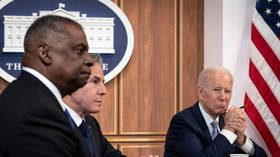
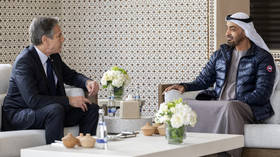

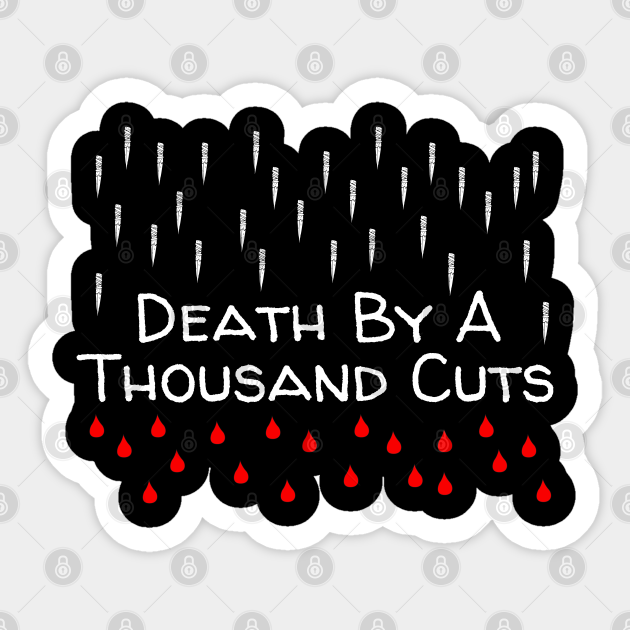

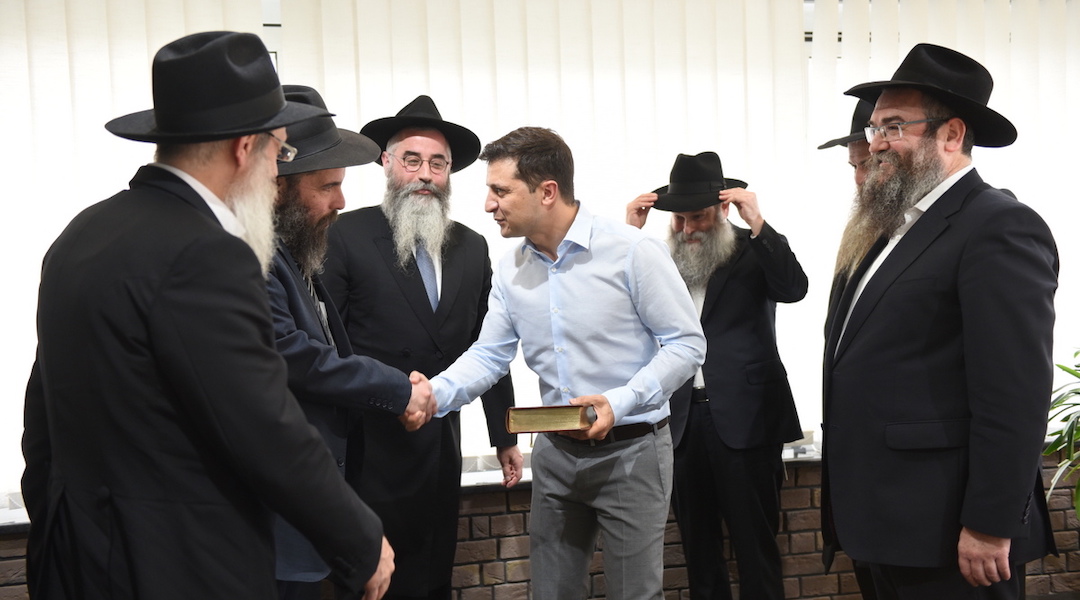

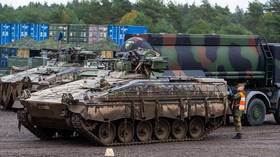



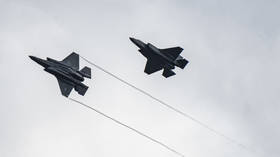
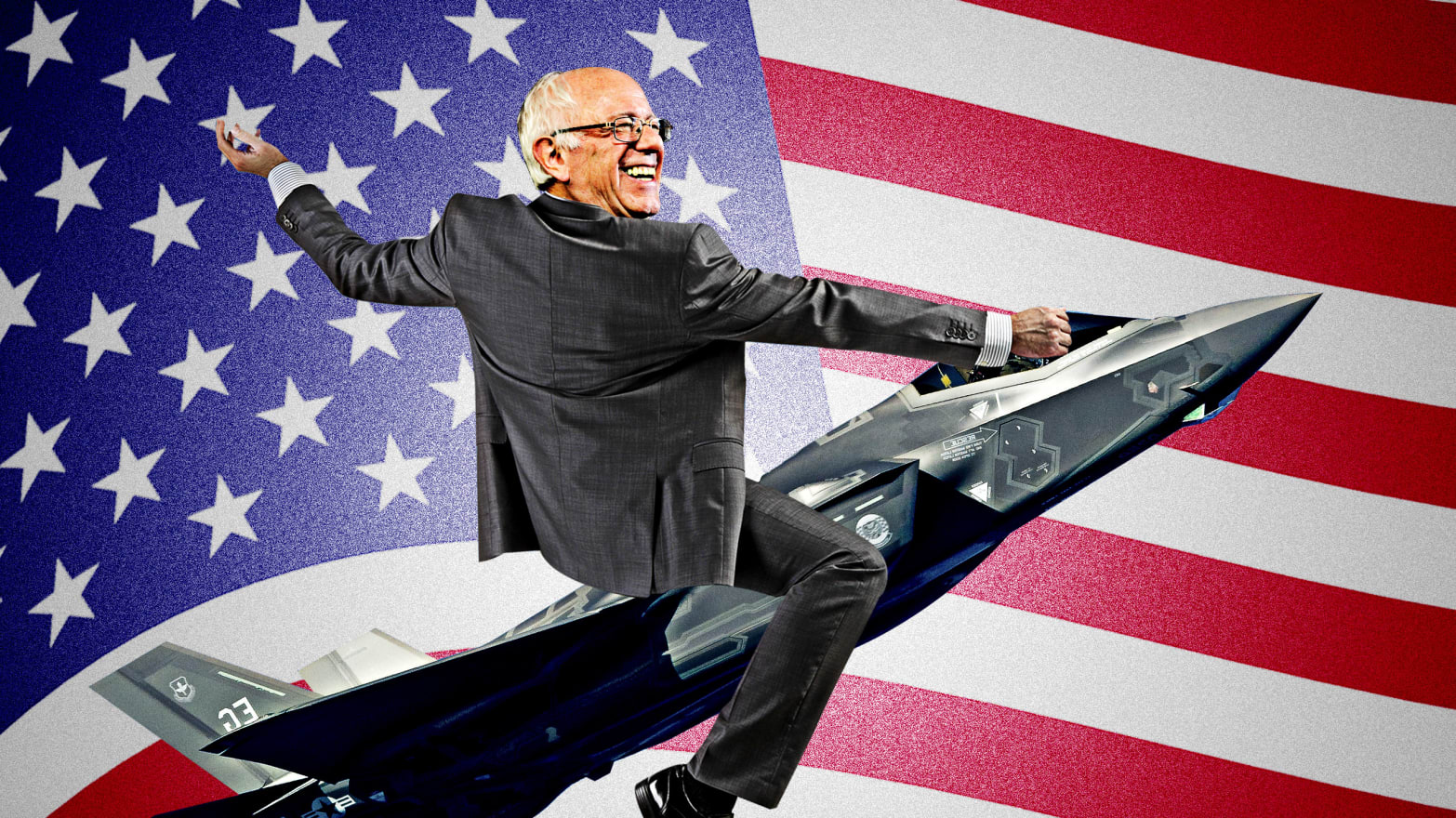

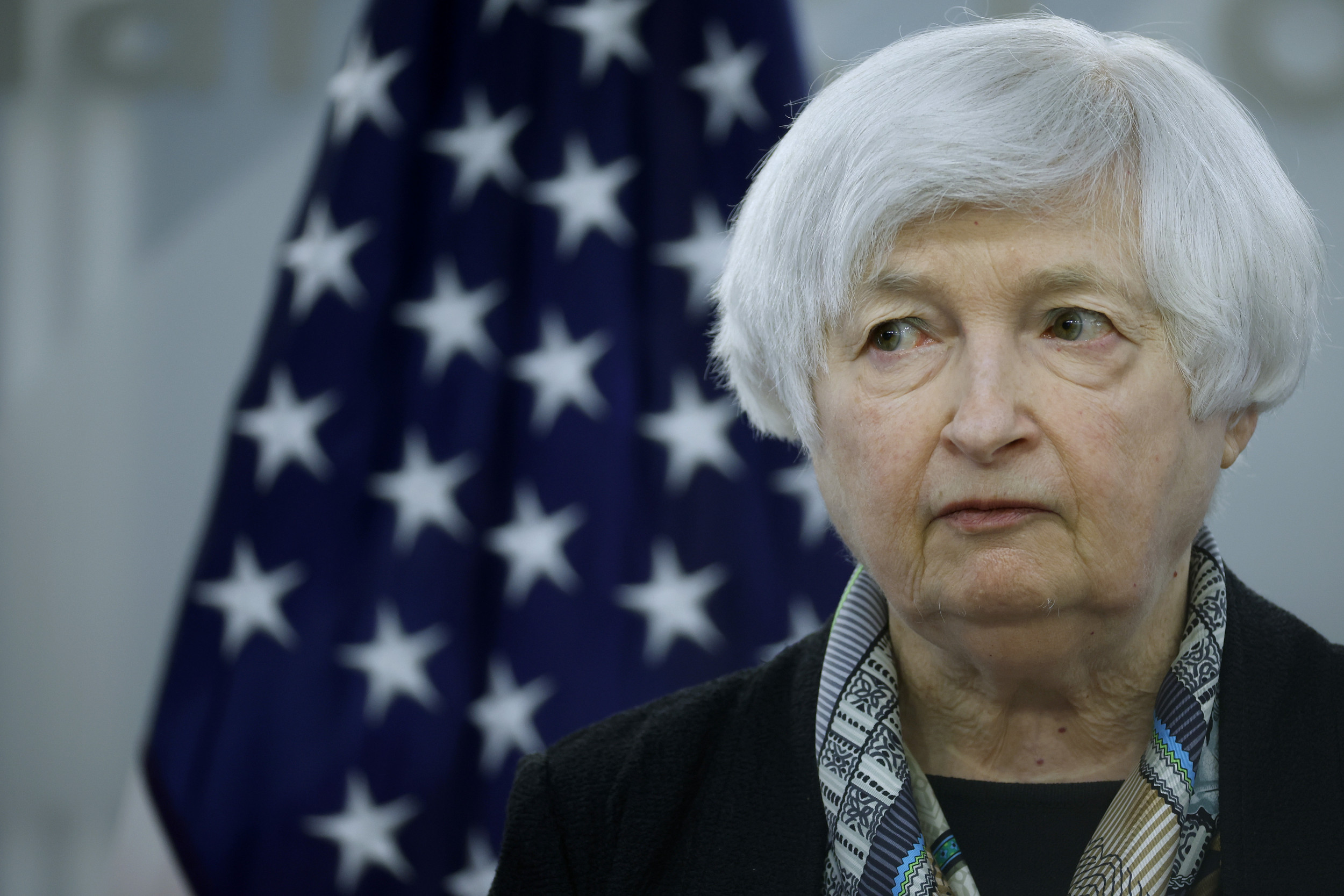
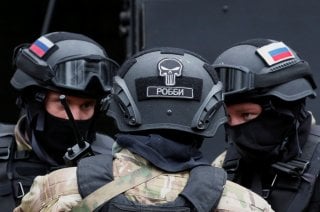

 …
…

